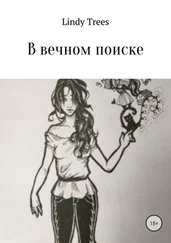“I don’t know,” I said. I was going to have lunch with Marius, but it already seemed that I might be a lunatic.
In the restaurant I found Marius sitting with an enormous negro, who as I approached arose as if to go. “Excuse me,” he said. “Excuse me.” He was bowing politely in several directions. He was dressed quite simply in ordinary clothes, but as he turned I saw by his collar that he was a priest. This vision, after the funeral morning, appeared so ludicrous that I wanted to laugh. It was as if there had suddenly sprung up in the world a geometrical progression of clergymen — a multiplicity which, like some nightmare mathematical problem, might lead me to infinity before I knew where I was. I walked carefully, as if on tombstones. “Hullo,” Marius said. The enormous man was swaying round the back of his chair, a graceful elephant like in a Disney cartoon, an elephant that dances and floats on its toes. “I shall now leave you,” he said. “I shall leave at once.”
“Don’t go,” Marius said. “Why don’t you stay and have lunch with us?”
“I fear I am intruding.”
“Of course not, no, do sit down.” Marius introduced him to me as Mr. Palmerston.
Because I wanted to laugh, and was afraid that if I did he would think I was laughing at him, I did my best to like him. I remember it starting like this, that I was sorry he might misunderstand me.
He sat down and spread his hands on his knees. “You must forgive me,” he said. “I happened to meet our friend Marius on the sidewalk, and he prevailed upon me to come and sit with him. Naturally I was honoured.” He spoke meticulously, with a faintly foreign intonation.
“I am very glad,” I said.
“I knew our friend when he was a child.” He leaned towards me. “I was intended to be his teacher, and I discovered that it was he who was teaching me.” He raised one eyebrow so that his forehead furrowed into a thousand tiny wrinkles.
“What did he teach?” I said.
“Life,” Mr. Palmerston said. “Life!” He began to sweat, and his face was like the night sky with a moon reflected on his cheek-bone. “I was very ignorant,” he said.
Marius ordered lunch with a professional assurance.
“And now he is coming back to teach us again,” Mr. Palmerston said. “I am very glad. In my country he is a much needed man, a very much needed man indeed.”
“What do you do?” I said to Marius.
Mr. Palmerston waited for him to reply and then answered for him. “He does everything,” he said. “Everything. He is the goose that lays the golden egg.” He smiled dazzlingly and then leaned towards Marius. “I intend nothing personal,” he said. His concern was enormous, as if he were going to cry.
“Nothing,” Marius said.
“Oh he is a great benefactor. Great indeed. He gave me a kitchen for my church.” Mr. Palmerston began to mop his face with a crimson handkerchief. “And a great deal besides. For my school, and for my poor people who do not trust. There is so much to be done.” I could not understand why he was sweating when he must have been accustomed to the heat. It was as if he were being roasted. “It is quite frightening,” he said.
“It is for you it is frightening,” Marius said.
“No, I do no more than follow my nose. And if I sneeze, I am a priest, and I have my handkerchief.” He waved it comically in front of his face. “It is for you I am afraid, if you catch cold.” Tears came into his eyes so that he could dab at them with his sleeve.
“Don’t worry,” Marius said.
“Worry?” He said. “Of course I worry. See!” He held out above the tablecloth a hand that was trembling.
We watched his heavy, heavy hand with the backs of the fingers knobby like wood and then he turned it over so that we were looking at his palm. It was pink as if it had been scraped and bleeding. “Tell me,” he said, “do you go to Church?”
At first I did not realize that he was talking to me, and then I said “No.”
“Oh I am sorry,” he said. “I am so terribly sorry.” He turned his huge agonized face towards me so that it was like a dark pool in which my own was drowning.
“You are the only clergyman who has ever asked me that,” I said.
“Oh,” he said. “Oh, I see.”
He sat there with a crimson handkerchief against his heart like the corner of a sunset. He stared at me. “You have wanted to be asked?”
“I have expected it.”
“How extraordinary,” he said. “How extraordinary indeed.”
“Isn’t it a serious question?”
“Certainly it is serious.”
“Then why is it that in this country no one asks it?”
He looked at the plate of food that had been placed in front of him and he pushed it a few inches away on his tablecloth and he turned his glass upside down beside it. “You say that in this country it is not serious? Not serious enough? What is it that is not serious?”
“The people who go to church and the people who do not are part of the same thing. They like having enemies. The people who talk about love do not love, and those people who talk about hell do not dissuade their neighbours from going there. The people who are supposed to intercede on behalf of the world have something to do when the world is going to damnation.”
“Intercession! You are not talking about intercession!”
“About action, then, if intercession is useless.”
“And if it isn’t!”
“You can see that it is.”
“Oh!” Mr. Palmerston said.
He closed his eyes and his lips were moving as if he were talking to himself. He sat down with his hands folded like an enormous Buddha. Then his whisper became audible. “I have never before heard it called not serious. Never before in the world.” He opened his eyes so that the pool rippled across its surface. “So you would judge us then?”
“I judge nothing, I say that you fail.”
“You can say that about no one!”
“I will say it about myself and when others do not say it I will wait for them.”
“We say it every day of our lives!”
“Then why are you not more miserable? I tell you that you should be miserable, misery is your prerogative, and yet misery is the one thing you despise. If you despised your failures you would be more serious.”
“You put everything upside down, it is the opposite that has always been said. . ”
“And it is the opposite that you have always known was not true. Once the world attacked you from behind, it attacked you because you made a virtue of poverty and simplicity and that was what you knew how to answer. Now the world has gone past you and you are still looking backwards to present yourselves as worldly to a world that is not there, now the world looks back on you and calls you frivolous because your back is turned to it and your back is all it sees. If you turned then you would not be able to be so glib, you would not be able each day to forget your responsibility in the joke of being subtle and disarming. The world has gone away from you because you have forgotten your responsibility to it, you may not have forgotten your responsibility to God but you have forgotten your responsibility to your neighbour. And if you remembered you would not smile!”
Mr. Palmerston pushed his chair back from the table with a screeching sound on the floor like an animal, and then he lumbered forwards onto his hands so that I thought he was ill. Then he went down on his knees and I saw he was praying. In the middle of the restaurant he knelt while the talking like the ceasing of canaries drained away and in the silence he was motionless like a dying bull. Marius and I looked away from him and nobody moved and then he struggled to his feet with a huge motion like a camel and he swayed towards the door through the awkward eyes and went through it and was gone. I sat for a few moments but Marius did not say anything so I left my food and followed him. I could not see him in the street.
Читать дальше












